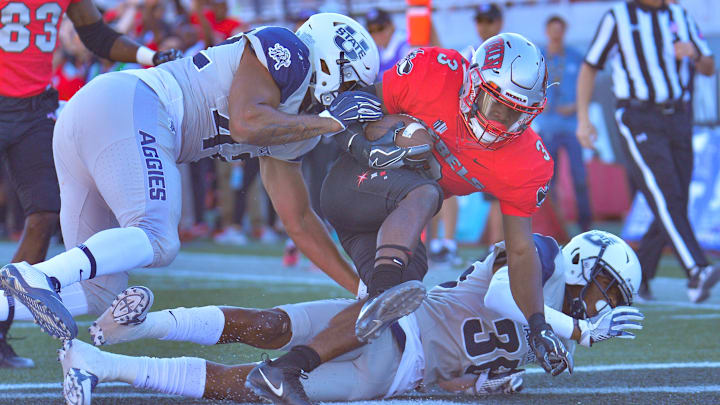The Pac-12 once took the Mountain West's outstretched hand (in the form of a football scheduling agreement this year) when it was on its knees, near death after losing 10 members to the Big Ten, Big 12 and ACC.
Now, with that scheduling agreement expiring after just one year, the Pac-12 decided to stab the Mountain West in the back by poaching four of its premier schools to join Oregon State and Washington State permanently.
On Sept. 12, the Pac-12 announced Boise State, Colorado State, Fresno State and San Diego State would become official members in 2026.
However, that only left the conference with six teams, two short of the NCAA's required eight-team minimum to be considered FBS-eligible. That led to speculation across sports media about who the Pac-12 might target next to fill the final two slots.
Pac-8? Who's next to be added by West Coast-based conference?
The Action Network's Brett McMurphy reported Saturday that the Pac-12 is aiming for two more Mountain West schools to reach the NCAA eight-team minimum.
UNLV and Utah State are considered "top targets" per McMurphy, keeping the regional vibe of the conference intact.
However, he also noted that any combination of Memphis, Tulane and UTSA from the American Athletic Conference is still under consideration.
The Pac-12's ties are already strong in Las Vegas, with the conference's football championship game and basketball tournament being hosted there in years past. And Utah State, considered the little brother to Utah — a member of the Pac-12 from 2011-2024, seems like a natural successor to the Utes.
However, with the Pac-12 then presumably claiming five of the Mountain West's top six markets, it could spell doom for the former if it doesn't scramble to add teams of its own.
That could trigger another seismic shift in realignment, further disturbing the college football - and by extension other sports like basketball - worlds.
The Pac-12 is currently in the middle of a two-year grace period offered by the NCAA after it lost 10 of its original 12 members.
